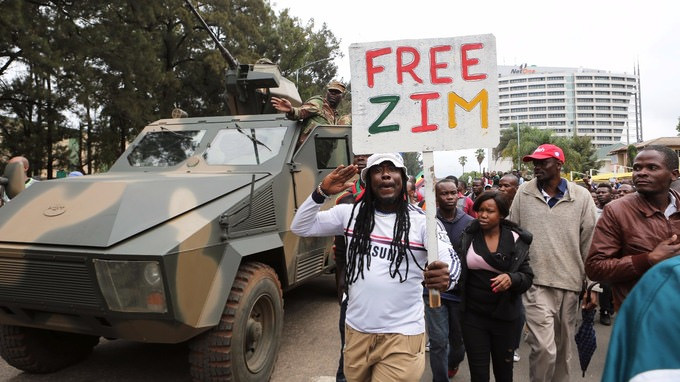Zimbabwe: Church can lead healing process
In the first election in Zimbabwe since long-time leader Robert Mugabe was ousted from power, the ruling ZANU-PF party has managed to hold onto control of the presidency and Parliament. But society remains fractured.
In the first election in Zimbabwe since long-time leader Robert Mugabe was ousted from power, the ruling ZANU-PF party has managed to hold onto control of the presidency and Parliament. But society remains fractured. The following article was published in the September-October 2018 issue of NewsNotes.
Zimbabwe’s Constitutional Court upheld incumbent President Emmerson Mnangagwa’s narrow victory in the first election since long-time leader Robert Mugabe was ousted from power. The opposition Movement for Democratic Change (MDC) Alliance had brought the legal challenge claiming vote-rigging and seeking either a new election or a declaration that its candidate, Nelson Chamisa, won.
Although the election process was mostly peaceful, the credibility of the elections held on July 30 has been questioned by Zimbabwe citizens, the MDC Alliance, and the international community. Tensions rose over the three days after the vote that went by without the Zimbabwe Electoral Commission declaring a winner. At least six people were killed in clashes in the streets of Harare between the army and MDC Alliance supporters, who alleged that the commission rigged the vote count to rob their party leader of victory.
Suspicions continued to grow after the commission declared Mnangagwa the winner on August 3. The commission reported that Mnangagwa received 50.7% of the vote – narrowly avoiding a second-round run off – and Chamisa received 44.3% of the vote. After review, the Constitutional Court upheld this result, saying the MDC Alliance failed to produce “sufficient and credible evidence” of alleged vote-rigging.
The accusations made by the MDC Alliance resonate broadly with many in Zimbabwe who live under the weight of the ruling ZANU-PF party’s economic mismanagement and political repression.
Jesuit Father Joe Arimoso, a leading educationist in Zimbabwe, says it is now left to the Church to pick up the pieces.
“The Church finds itself with the daunting task to unite its children and to re-emphasize the values of unity, forgiveness, tolerance, political maturity and peace,” Father Arimoso wrote in Vatican News on August 6. “We need an urgent response to encourage all parties to find a way of working together to forge unity. We cannot afford to sustain any grudges which will ground any meaningful development.”
The bigger task for the Church, according to Fr. Arimoso, will be “to go beyond these elections and find a way of healing an already fragile society.” He endorses the call for a “national peace and reconciliation process that goes beyond electoral disputes” issued by the Catholic Commission for Justice and Peace in Zimbabwe on August 4. “This is exactly what Zimbabwe needs and the Church can take the lead in the process.”
Photo: Zimbabwe tells Robert Mugabe to go! Solidarity March, Nov 18, 2017. Photo by Flickr/Zimbabwean-eyes and available in the public domain.

